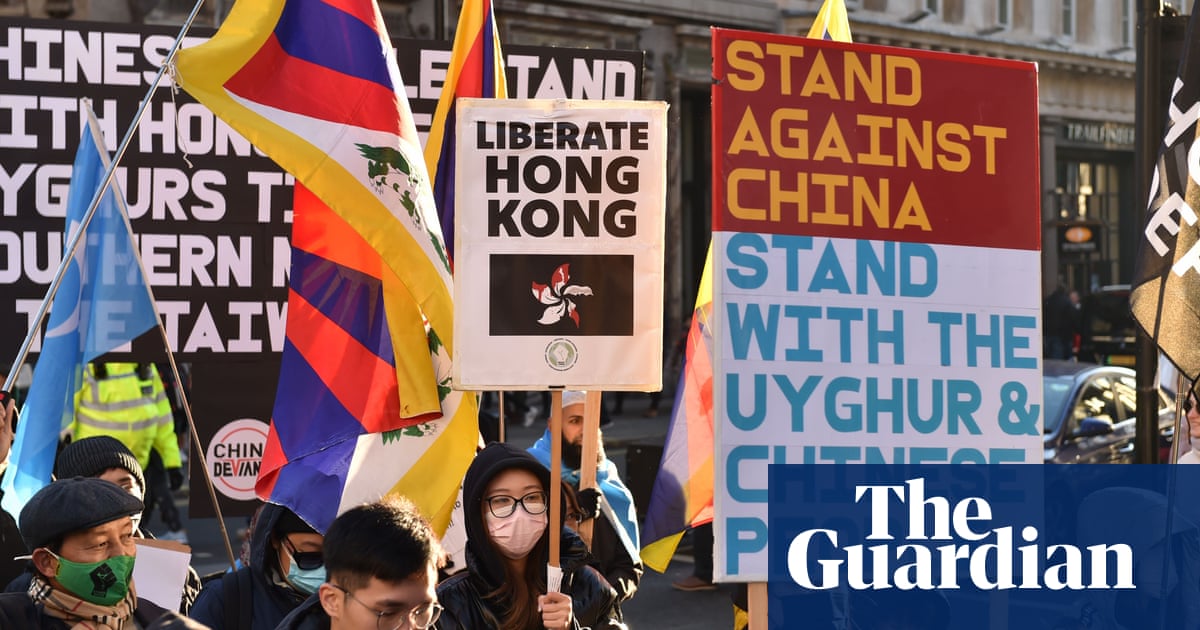
Anti-protest curbs contained in the new policing bill are disproportionate, hand subjective powers to officers and the home secretary, and violate international human rights standards, MPs and peers have been told.
Giving evidence to the joint committee of human rights on Wednesday, lawyers said that if the police, crime, sentencing and courts bill was passed as it stands, it would have a “chilling effect” on the right to protest.
Jules Carey, the head of actions against the police and state team at Bindmans solicitors, said the provisions “clearly violate international human rights standards, and they constitute a savage attack on the right to peaceful assembly”.
He added: “This represents a clamping down on protest, and this clamping down on protests isn’t just muting the voices of dissent, it’s also the government deliberately closing its ears to the warnings and the alarms that are raised by citizens on the street. And what I’d say is that it is a foolish landlord who removes the fire alarms from his property because he doesn’t like the noise.”
Opposition to the policing bill, which attracted increased scrutiny after officers dragged away mourners at the Sarah Everard vigil, has sparked public protests across England and Wales. Earlier this month demonstrators rallied in central London, where they were addressed by the former Labour leader, Jeremy Corbyn, and in dozens of other cities.
Bristol has seen weeks of rallies, with clashes between police and demonstrators who accused officers of being too aggressive, and has been the focus of protests. Further demonstrations are planned across England on Saturday to mark May day.
On Wednesday, the committee heard criticism that the bill’s provisions for clamping down on protests because of “noise” and “unease” were vague and subject to interpretation, while a potential 10-year sentence for public nuisance was described as “disproportionate”.
Additionally, Carey said that there was a conflict of interest in the bill, which passed its second reading in parliament last month, handing the home secretary, Priti Patel, power to define serious disruption, given that her budget is affected by policing protests.
Concerns were also raised that it could have a discriminatory effect. Zehrah Hasan, the director of Black Protest Legal Support, said: “There’s a concern that protests about police violence, brutality against black people in the UK, are exactly the types of protest that the state might want to stifle. And, you know, we’ve seen this reflected also in the comments of the home secretary, who branded last year’s Black Lives Matter protests “dreadful”.
“Chants which might highlight the plight of black communities may inevitably cause some white people to feel uneasy, but is it not important that protests by their very nature cause the state and cause the public to pause for thought and to be challenged?”
Kevin Blowe, coordinator at Netpol: the Network for Police Monitoring, said the bill would have a “chilling effect”, and that it was less interested in upholding the right to protest than “in way finding ways of imposing restrictions”.
The committee also heard from BJ Harrington, from the National Police Chiefs Council, and Matt Parr from HM Inspectorate of Constabulary. Harrington said current laws were insufficient and the new powers were “proper, and they do give us the ability within all the safeguards to balance or discharge our duties”.
However, Parr said: “We didn’t advocate use of the word ‘unease’, nor did we specifically look at whether noise should be included and whether it was covered elsewhere anyway. And I think if you were being charitable, you might say that the advantage of it is that it at least offers clarity … but … that’s a matter for parliamentarians, not really us.”












